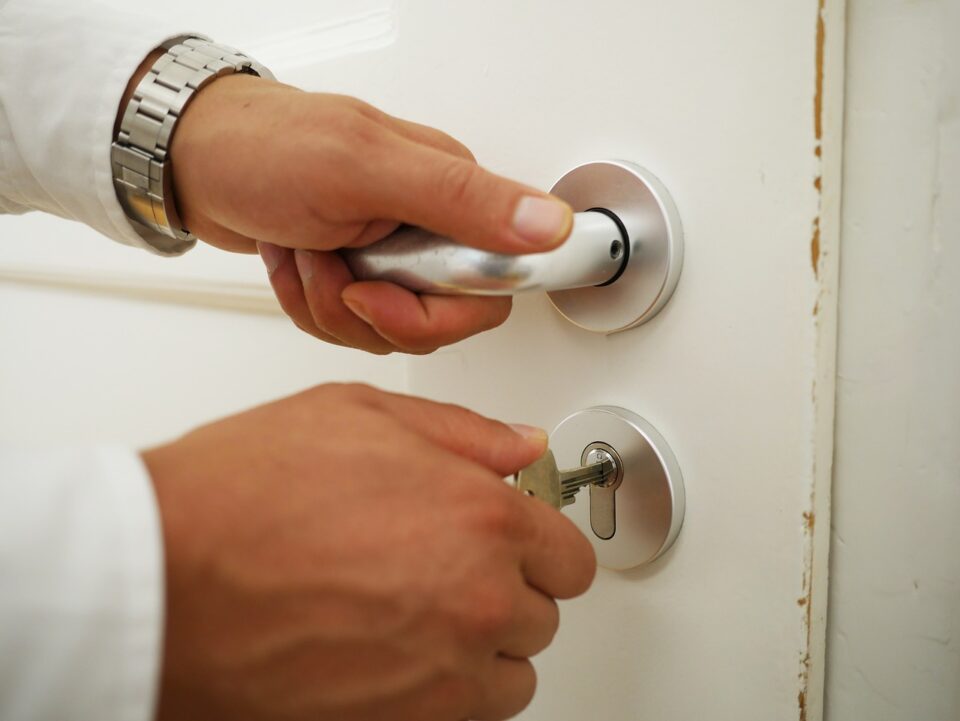
Report Card Grades Instead of Assessments? NJ Legislature Is Losing the Plot.
December 14, 2023
NJ Public Charter School Parents Take to the Statehouse, Urging Governor and Lawmakers to Support Charter Facilities Funding
December 15, 2023Lakewood Macher* Has an Opportunity. Will He Take It?
It was big news in Lakewood and beyond when Assemblyman-Elect Avi Schnall became the first Democrat to win in his Ocean County district in 30 years. What’s one item on his agenda? Private school choice funded by public funds in the form of scholarships for low-income children red-lined into low-performing schools.
“I believe that the state has the obligation to ensure that all of its children attend quality education institutions and are afforded those rights and privileges,” Schnall told the Asbury Park Press. When asked about the scholarships, sometimes called “vouchers,” he remarked, “We don’t have a plan yet but that is something that is important to us. Absolutely.”
Schnall’s support for the state providing money for parents to use for private schools is not a surprise given his base: Lakewood currently has 50,000 K-12 students in ultra-Orthodox Jewish yeshivas. Their parents would appreciate the tuition assistance, and so would the 160 or so schools. Schnall has high hopes for a 2022 bill proposal called the “Opportunity Scholarship Act,” one in a line of unsuccessful legislative attempts to expand school choice.
Can Schnall corral enough votes to push the bill forward? Can he make the argument in a largely blue-ish state (Ocean County is bright red) that these scholarships are the right move, especially in the context of student learning loss over the pandemic and general dissatisfaction with the state school system? Would offering parents the option of leaving their assigned school district help with our appalling achievement gaps?
Only if the bill is crafted properly, with an unflinching eye on educational equity.
For years I was opposed to vouchers, struggling with the idea of directing state funds to private and religious schools. But COVID-19 (plus other factors) changed the equation for me: How can equity advocates sit on their hands in a state where entry to high-quality schools is determined by a family’s ability to afford expensive homes and pay crazy-high property taxes? How is this refusal to confront the plight of families ghettoized in low-performing schools “progressive” or “stronger, fairer, forward,” to quote Gov. Phil Murphy’s campaign slogan?
Others who consider themselves “progressives” like Robert Reich, have come to the same conclusion. Reich endorsed Bernie Sanders for president in both 2016 and 2020 and co-founded Inequality Media, which has as an “ultimate vision” a “United States where active participation by informed citizens restores the balance of power in our Democracy and creates an economy where gains are widely shared.” In “the Case for ‘Progressive’ Vouchers” he argues that “the only way to begin to decouple poor kids from lousy schools is to give poor kids additional resources, along with vouchers enabling them and their parents to choose how to use them.”
Also, low-income parents, particularly those of color, are in favor of having the power to make decisions about which schools best suit their children. A decade ago in 2012 when hopes were briefly high for the Opportunity Scholarship Act, only 55% of voters supported it. But a recent EdChoice poll, found that, nationally, 78% of Republicans and Democrats (77% of Independents) support these types of bills. The numbers are even higher for Black parents and low-income parents. Also, recent studies of the impact of vouchers on traditional schools “find positive evidence of competitive effects and that no study finds evidence of negative effects on students attending traditional public schools.”
What does the current bill look like? And what needs to change to ensure that recipients of vouchers are truly granted access to high-quality education?
The new version of the NJ bill (still called the “Opportunity Scholarship Act”) would create a five-year pilot program that would offer scholarships to private and out-of-district schools. There would be 2,500 scholarships available in the first year and scale up to 10,000 in its fourth and fifth year. Students would have to be currently assigned to a “chronically failing school,” which the proposal says means “40% of students did not pass both the language arts and mathematics subject areas of the State assessments, or at least 60% of the students did not pass either the language arts or mathematics subject areas.” Only students in eight districts would qualify for the pilot: Asbury Park, Camden, Elizabeth, Lakewood, Newark, Orange, Passaic, and Perth Amboy. Eligible students would have to come from low-income families.
Also, the schools accepting scholarship students would have to choose students through a lottery, release the results of annual “grade-level appropriate assessments,” not require any additional payments from families beyond the value of the scholarship, and allow parents to opt their children out from religious instruction. Also, all these schools have to be non-profits.
Sounds good.. But would Assemblyman-Elect Avi Schnall support this bill?
I don’t think so.
Schnall was elected because he was endorsed by the Vaad, a group of Lakewood rabbis who mostly control the ultra-Orthodox electorate. (For details of how he destroyed his Republican opponent in a district that supports Trump, see this great Joey Fox analysis.)
Yet if his primary interest is Lakewood yeshivas, the current bill proposal won’t work. These schools don’t hold lotteries; it takes connections to get into the best schools. There is little attention to secular studies (boys typically receive 90 minutes a day, girls get more); students aren’t given “grade-level appropriate assessments.” Religious instruction is mandatory.
Here is a mother of a student at Lakewood’s Kol Torah yeshiva on a message board: “I have been reaching out to Kol Torah for months, trying to get information about my son’s progress reports, specifically in the secular studies. I am being completely ignored. It’s an absolute disgrace. All I know is that my son has recess 4 times a day and is often “talmid [disciple] of the week”, yet I am not getting any information about his EDUCATION.”
If Avi Schnall would support the Opportunity Scholarship Act, he could be instrumental in creating more educational equity in NJ. But will he leave Lakewood yeshivas behind? That seems unlikely. If so, he’s missing his own opportunity to be a voice for educational equity.
* “Macher” is Yiddish for an influential person.




